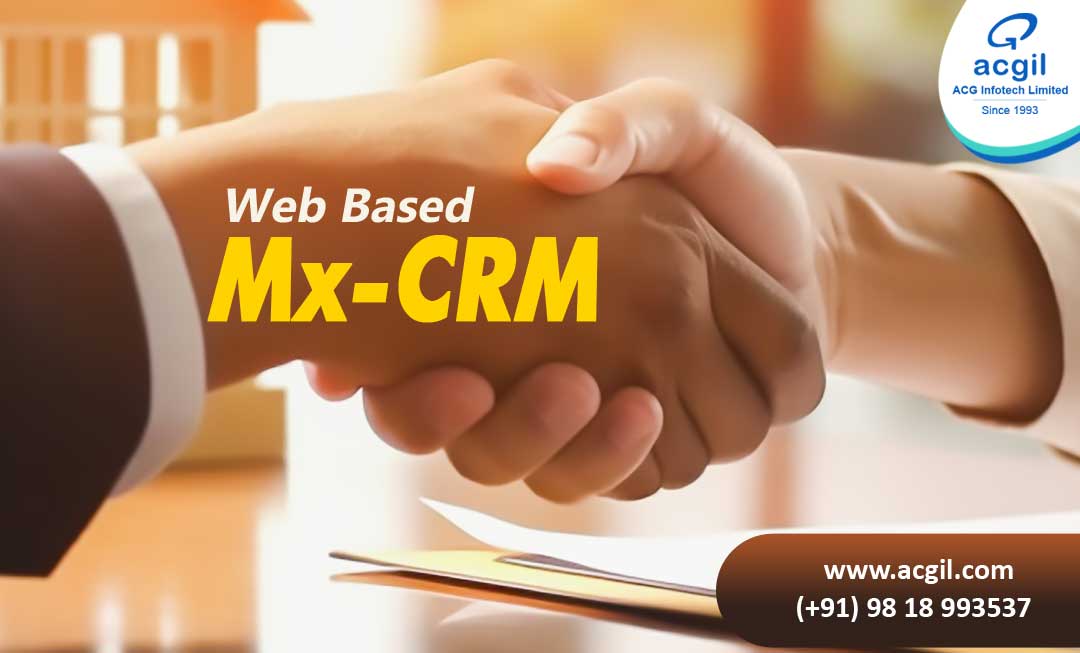Are you looking to improve customer relationships and streamline your business operations? One effective solution is implementing a web-based Customer Relationship Management (CRM) system. With numerous options available in the market, choosing the right web-based CRM for your business can be a daunting task. In this blog, we will guide you through the essential factors to consider when selecting a Web Based CRM that aligns with your business needs and objectives.
Table of Contents
- Introduction
- Understanding Web-Based CRM Systems
- Assessing Your Business Requirements
- Evaluating Key Features and Functionality
- Considering Integration Capabilities
- Ensuring User-Friendliness and Ease of Navigation
- Analyzing Customization and Scalability Options
- Reviewing Security and Data Privacy Measures
- Assessing Pricing and Cost-Effectiveness
- Seeking User Feedback and Reviews
- Comparing Vendor Support and Training Resources
- Considering Mobile Accessibility
- Exploring Third-Party Integrations
- Selecting a Web-Based CRM Solution
- Conclusion
- Frequently Asked Questions
- Introduction
In today’s highly competitive business landscape, maintaining strong customer relationships is crucial for success. Web-based CRMs offer a comprehensive solution to manage customer interactions, sales pipelines, marketing campaigns, and more. Choosing the right web-based CRM that meets your unique business requirements is vital to maximize productivity and achieve long-term growth.
- Understanding Web-Based CRM Systems
Web-based CRMs, also known as cloud-based or SaaS (Software as a Service) CRMs, are hosted on remote servers and accessed through a web browser. Unlike traditional CRM software, web-based CRMs eliminate the need for on-premises infrastructure, making them more accessible, flexible, and cost-effective for businesses of all sizes.
- Assessing Your Business Requirements
Before diving into the vast sea of CRM options, it’s crucial to assess your business requirements thoroughly. Consider factors such as the size of your organization, the number of users who will utilize the CRM, and the specific functionalities you need. For instance, do you require lead management, email marketing automation, or advanced reporting capabilities? Understanding your business needs will help narrow down your options and find the most suitable CRM solution.
- Evaluating Key Features and Functionality
When choosing a web-based CRM, it’s essential to evaluate the key features and functionality it offers. Look for features like contact management, lead tracking, sales forecasting, task automation, email integration, and analytics. The CRM should align with your business goals and enable you to streamline your processes effectively.
- Considering Integration Capabilities
Your web-based CRM should seamlessly integrate with other essential tools and applications your business uses. Integration with popular email marketing platforms, project management software, or e-commerce platforms can enhance efficiency and productivity by eliminating manual data entry and ensuring data consistency across systems.
- Ensuring User-Friendliness and Ease of Navigation
A user-friendly CRM with an intuitive interface is crucial for user adoption and productivity. Consider the ease of navigation, the availability of customizable dashboards, and the overall user experience when evaluating different CRM options. Look for a CRM that minimizes the learning curve and allows your team to quickly adapt to the new system.
- Analyzing Customization and Scalability Options
Every business has unique processes and workflows. Therefore, it’s essential to select a web-based CRM that offers customization options to tailor the system according to your specific needs. Additionally, consider the scalability of the CRM to accommodate your business growth. Ensure that the CRM can handle increased data volume, user expansion, and additional features as your business evolves.
- Reviewing Security and Data Privacy Measures
Data security and privacy are critical when selecting a web-based CRM. Ensure that the CRM vendor implements robust security measures such as encryption, access controls, and regular data backups. Additionally, check if the CRM complies with relevant data protection regulations like GDPR or CCPA to safeguard your customer’s information.
- Assessing Pricing and Cost-Effectiveness
Consider your budget and evaluate the pricing models offered by different web-based CRM providers. Some CRMs charge based on the number of users, while others have tiered pricing based on features or usage. Take into account any additional costs such as implementation, training, and ongoing support. Assess the long-term value the CRM provides to determine its cost-effectiveness for your business.
- Seeking User Feedback and Reviews
Researching user feedback and reviews can provide valuable insights into the effectiveness and reliability of different web-based CRM solutions. Look for reviews and testimonials from businesses similar to yours to gauge their satisfaction with the CRM’s performance, customer support, and overall experience. This information can help you make an informed decision.
- Comparing Vendor Support and Training Resources
Vendor support and training resources are essential for a smooth CRM implementation and ongoing usage. Evaluate the level of support offered by the CRM vendor, such as email, phone, or live chat support. Additionally, check if they provide comprehensive training materials, documentation, or webinars to assist your team in utilizing the CRM effectively.
- Considering Mobile Accessibility
In today’s mobile-driven world, having mobile accessibility is a significant advantage. Check if the web-based CRM offers mobile applications compatible with iOS and Android devices. Mobile accessibility allows your team to access critical customer information, update records, and collaborate on the go, enhancing productivity and responsiveness.
- Exploring Third-Party Integrations
Consider the availability of third-party integrations within the web-based CRM ecosystem. Integration with popular tools like email marketing platforms, accounting software, or customer support systems can streamline your workflows and enhance efficiency. The ability to connect your CRM with other applications expands its capabilities and makes it a central hub for your business processes.
- Selecting a Web-Based CRM Solution
After thorough evaluation and consideration of the factors mentioned above, it’s time to choose the right web-based CRM for your business. Select a CRM solution that aligns with your business goals, offers the necessary features, provides excellent support, and fits within your budget. Implementing the right CRM can transform your business operations and help you build strong, lasting customer relationships.
- Conclusion
Choosing the right web-based CRM is a crucial decision that can significantly impact your business’s success. By assessing your business requirements, evaluating key features, considering integration capabilities, and reviewing security measures, you can make an informed decision. Remember to consider user-friendliness, customization options, pricing, user feedback, and mobile accessibility. Select a web-based CRM solution that empowers your business, streamlines processes, and fosters meaningful customer relationships.
- Frequently Asked Questions
Q1. What is a web-based CRM?
A web-based CRM, also known as a cloud-based or SaaS CRM, is a customer relationship management system that is hosted on remote servers and accessed through a web browser.
Q2. How do I choose the right web-based CRM for my business?
To choose the right web-based CRM, assess your business requirements, evaluate key features, consider integration capabilities, review security measures, and consider factors like user-friendliness, customization options, pricing, user feedback, and mobile accessibility.
Q3. Can a web-based CRM integrate with other tools and applications?
Yes, many web-based CRMs offer integration capabilities with popular tools and applications such as email marketing platforms, project management software, and e-commerce platforms.
Q4. What should I consider when evaluating pricing for web-based CRMs?
When evaluating pricing for web-based CRMs, consider factors like the pricing model (e.g., user-based or feature-based), implementation costs, training costs, ongoing support costs, and the long-term value the CRM provides.
Q5. How can a web-based CRM benefit my business?
A web-based CRM can benefit your business by helping you manage customer relationships, streamline sales and marketing processes, track leads and opportunities, improve collaboration, and enhance overall productivity.

